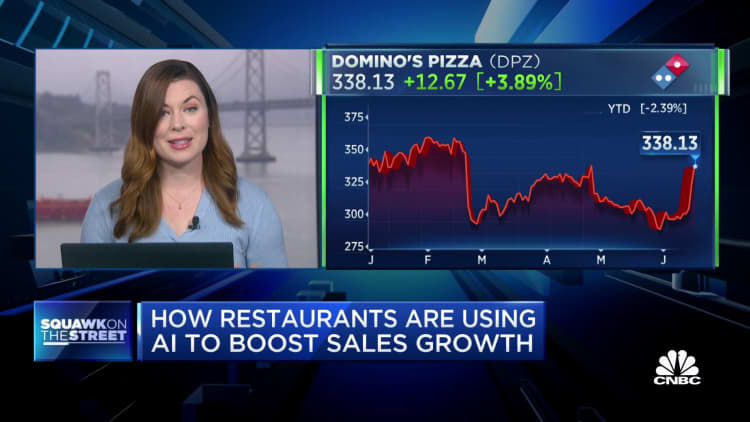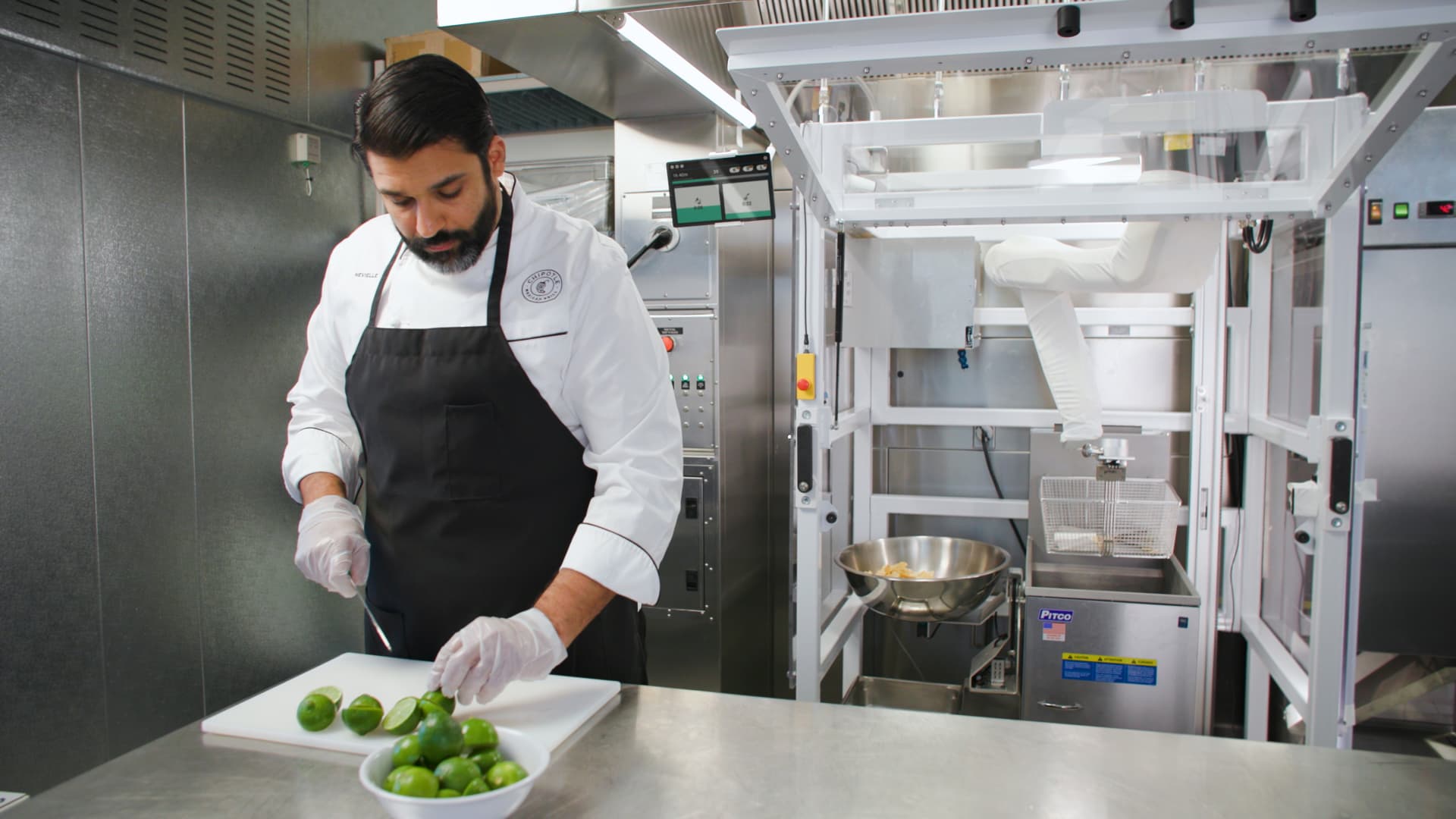
Restaurant brands are experimenting with artificial intelligence (AI) to streamline food service operations, from drive-thru to back-of-house and predictive ordering for consumers. While major chains have yet to fully adopt the technology, the potential benefits include automating tasks and creating more meaningful guest experiences for restaurant workers.
One significant advantage is addressing workforce challenges in a tight hiring market. The National Restaurant Association forecasts the industry will add 500,000 jobs by 2023, with currently only one job seeker for every two open positions.
According to TD Cowen, voice-enabled AI can increase sales by up to 15% through suggestive selling and reduce service times by 10 seconds. This AI adoption in the restaurant industry mirrors the emergence of third-party delivery services five years ago, which became integral to nearly every major restaurant operator.
However, there are obstacles to widespread AI adoption, including the need to convince franchisees and overcome language barriers and menu complexities that AI may struggle to navigate.
Despite these challenges, pilot programs are already underway. Carl’s Jr. and Hardee’s parent company CKE plans to launch AI integrations nationwide through partnerships with Presto and OpenCity AI. Yum! Brands has been leveraging AI to enhance operations, including its acquisition of Dragontail in 2021 for streamlining food prep and delivery at Pizza Hut locations.
McDonald’s sold McD Tech Labs to IBM in 2021 and tested AI technology for understanding drive-thru orders. Del Taco and Wingstop are utilizing voice-activated AI for drive-thru and phone orders, respectively. Panera Bread is working with OpenCity AI for drive-thru voice ordering and Miso Robotics to improve coffee quality and temperature control.
Chipotle, known for its tech leadership, partnered with Miso Robotics to introduce Chippy, a robotic chipmaker that follows the brand’s exact chip recipe. Chipotle also uses AI on its app for suggestive ordering and camera systems at its test kitchen to monitor customer volume and predict product needs in real-time.
The aim of AI and robotics adoption in restaurants is to enhance human experiences, assist crew members and managers, and provide predictive insights while maintaining personalized service.
Chipotle is testing out an autonomous kitchen assistant, Chippy, which offers a robotic solution for making chips in restaurants.
Courtesy: Chipotle
Chipotle has also implemented AI on its app for suggestive ordering and uses camera systems at its test kitchen to predict product needs based on customer volume. Chief Customer and Technology Officer Curt Garner believes that AI and robotics can amplify and improve human experiences at the company’s restaurants without replacing the role of crew members and managers.
Denial of responsibility! VigourTimes is an automatic aggregator of Global media. In each content, the hyperlink to the primary source is specified. All trademarks belong to their rightful owners, and all materials to their authors. For any complaint, please reach us at – [email protected]. We will take necessary action within 24 hours.


